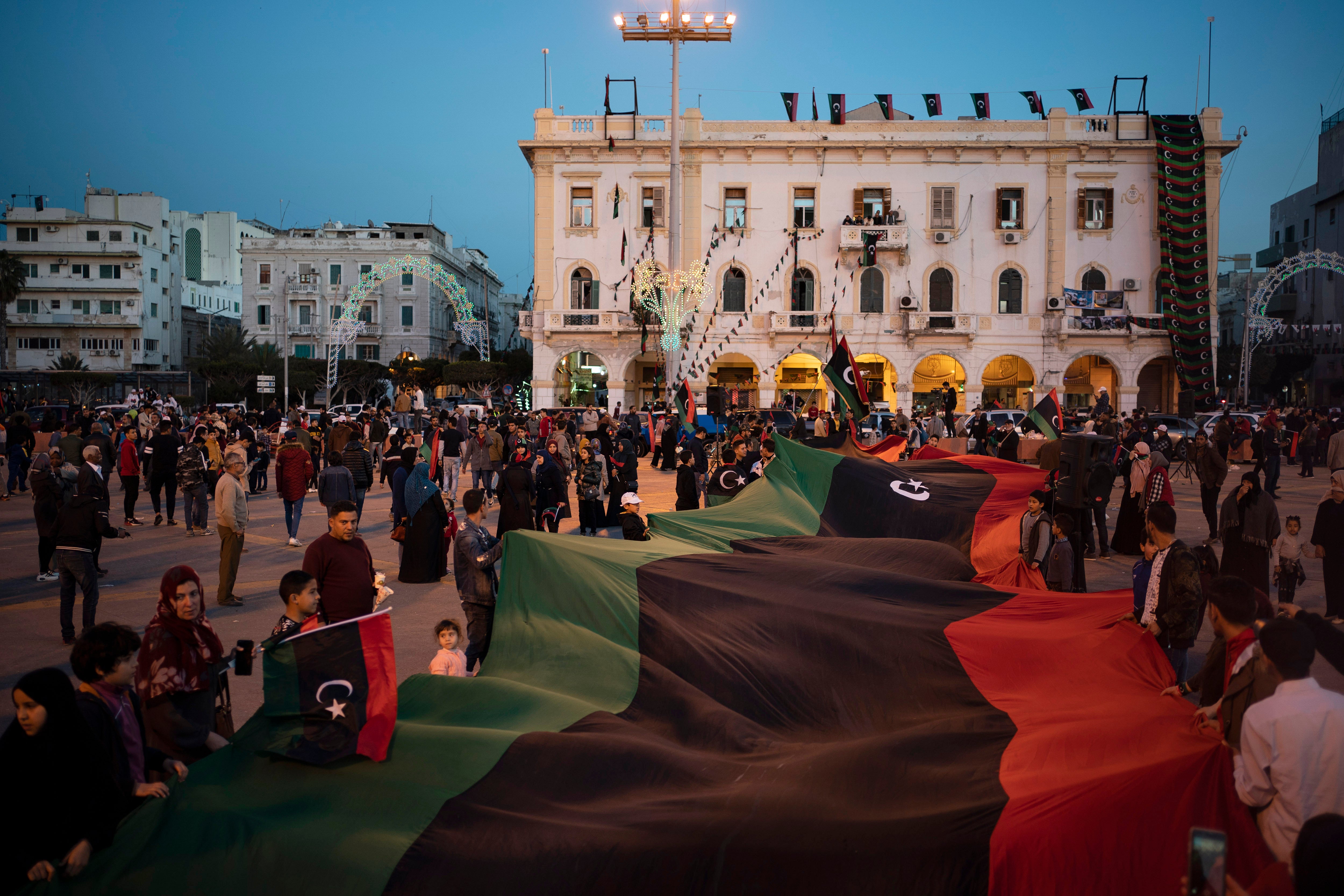UN report documents mass violations of Libya arms embargo
A U.N. report has sketched a grim picture of conflict-wrecked Libya, accusing several foreign governments of turning the oil-rich country into a stage where rivalries play out

Your support helps us to tell the story
From reproductive rights to climate change to Big Tech, The Independent is on the ground when the story is developing. Whether it's investigating the financials of Elon Musk's pro-Trump PAC or producing our latest documentary, 'The A Word', which shines a light on the American women fighting for reproductive rights, we know how important it is to parse out the facts from the messaging.
At such a critical moment in US history, we need reporters on the ground. Your donation allows us to keep sending journalists to speak to both sides of the story.
The Independent is trusted by Americans across the entire political spectrum. And unlike many other quality news outlets, we choose not to lock Americans out of our reporting and analysis with paywalls. We believe quality journalism should be available to everyone, paid for by those who can afford it.
Your support makes all the difference.A U.N. report has sketched a grim picture of conflict-wrecked Libya, accusing several foreign governments of turning the oil-rich country into a stage to play out rivalries and ignoring U.N. sanctions and a decade-long arms embargo.
The 548-page report by U.N. experts comes as an interim government took power in Libya this week, designed to steer the North African country through elections later this year.
The report said a U.N. arms embargo imposed 10 years ago has remained “totally ineffective,” with “extensive, blatant and with complete disregard for the sanctions measures” by U.N. member states supporting rival sides in Libya.
“Their control of the entire supply chain complicates detection, disruption or interdiction,” the experts said.
The report, released earlier this week, covers the period from October 2019 till January 2021, a time that saw heavy fighting between Libyan factions for control of the capital, Tripoli
It identified Turkey and Qatar as the backers of forces loyal to the U.N.-supported administration in Tripoli, to the west, while the United Arab Emirates Russia, and Egypt have supported Khalifa Hifter, the military commander controlling eastern and southern parts of Libya.
The report also details how these countries fueled the conflict in Libya, which descended into chaos in 2011, when a NATO-backed coalition helped rebels overthrow longtime autocrat Moammar Gadhafi, who was later killed.
It documented dozens of arms shipments, including drones, surface-to-air missiles, artillery pieces and armored vehicles, as well as the deployment of mercenaries — including Russians, Syrians, Sudanese, and Chadians — brought to Libya to bolster its warring sides, especially in Hifter's offensive on Tripoli.
Hifter’s forces launched an offensive in April 2019 to try to capture Tripoli from the U.N.-supported government there. The campaign collapsed in mid-2020 and his forces were forced to retreat to the strategic city of Sirte. They were pushed back in large part due to heavy Turkish military support of their rivals.
The U.N. experts also detailed how American security contractor Erik Prince a close ally of former President Donald Trump violated the U.N. arms embargo, along with three United Arab Emirates-based companies and their top managers, during Hifter’s campaign on Tripoli.
They outlined a private security operation called “Project Opus” designed to provide military equipment to Hifter and to “kidnap or terminate individuals regarded as high value targets."
The experts also documented the deployment of some 700 troops from Sudan’s paramilitary forces to Libya’s central town of Jufra, which houses an inland air base controlled by Hifter's fighters. The Sudanese forces, known for their brutal crackdown in the Darfur region, were in Libya for around two months but did not engage in combat, the experts said.
The report shows how airlines, charters and merchant vessels were used by foreign governments to transfer mercenaries and sophisticated weapons to the conflict, often by disguising their missions.
It also detailed a range of activities across Libya that threatened Libya’s peace, stability, or security. Militant groups remained active in the country, “albeit with diminished activities,” it said.
Eastern Libya authorities continued their efforts to illegally export crude oil and import aviation fuel, though in lesser quantities amid the pandemic, the U.N. experts said, while in western Libya, smugglers networks’ infrastructure “remains intact and their readiness to conduct illicit exports is undiminished.”
“A resumption of their illicit activities, once global demand for bunker fuel recovers, is to be expected,” the report said.
The report also addressed allegations of corruption that plagued the U.N.-led process that selected the new transitional government. At least three participants at the political forum in early November were offered bribes to vote for an unnamed candidate for prime minister, it said, without naming the forum members.
It referred U.N. Security Council members to additional details on the allegations in a confidential annex to report.